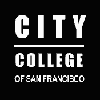
There is no try!
College and Career Education
Day 4 Lecture Notes
[ Class Home ] [ Homework Assignments ] [ Helpful Links ]
Tracey Kobayashi
50 Phelan Ave, NGYM
San Francisco, CA 94112
(415)452-7311
tkobayas@ccsf.edu
PE 9A: Fit or Fat
College & Career Ed
PE 50: Fitness Center

IM Me!
AIM - TKatCCSF
Yahoo - tkobico
ICQ - 155909399
Standardized Testing
SAT
The SAT Reasoning Test measures critical thinking skills -- how well you analyze and solve problems. Each section is scored on a scale of 200-800, and the writing section contains two subscores. The SAT is typically taken by high school juniors and seniors.
Each edition of the SAT includes a Critical Reading, Math, and Writing section, with a specific number of questions related to content. In addition, there is one 25-minute unscored section, known as the variable or equating section, which may be either a critical reading, math, or multiple-choice writing section. This section does not count toward the final score, but is used to try out new questions for future editions of the SAT and to ensure that scores on new editions of the SAT are comparable to scores on earlier editions of the test.
The 25-minute essay will always be the first section of the SAT, and the 10-minute multiple-choice writing section will always be the final section. The remaining six 25-minute sections can appear in any order, as can the two 20-minute sections. Test takers sitting next to each other in the same testing session may have test books with entirely different sections.
ACT
The ACT assesses general educational development and ability to complete college-level work. The multiple-choice tests cover four skill areas: English, mathematics, reading, and science. The optional Writing Test, measures skill in planning and writing a short essay.
Tools
For study tools, start with the College Board and ACT themselves. You can create a free account on the College Board site, look at practice questions, take the official online study course, or buy the study guide. If you want to take a course, you can try Kaplan or Princeton Review test prep methods. Do you NEED to take a prep course? Not necessarily. If you're fairly self-directed, buy a few study guides (not just the college board's) and practice, practice, practice.
College Prep Tools
First, obtain a copy of the SFUSD High School-College-Career Handbook. This guidebook not only describes the district in general, but also provides several resources.
Some sites are all-encompassing, and allow you to explore careers, search for colleges, prep for tests...
- ECOS Education and Career Opportunities System. By the Princeton Review.
- MyRoad A College Board tool.
Other helpful things...
- Common Application accepted by over 200 collges and universities in the country.
- National Collegiate Athletic Assoc.
- Nat'l Assoc. of Intercollegiate Athletics
- Nat'l Directory of College Athleteics">
- Nat'l Assoc. of Collegiate Directors of Athletics
For Financial Aid and Scholarship links, please go the the LINKS Page.
Thinking of Applying...
- Grades and standardized test scores (see above) meet criteria for college of your choice.
- Extracurricular Activities: campus clubs and organizations; cheerleading; athletics; performing arts; yearbook; school paper; volunteerism; jobs; mentor programs.
- Don't Burn Your Bridges: if you're going to do it, do it right; if you've done it right, stay in touch with supervisors, advisors, bosses...you may need them as references.
- Meet with alumni. Most campuses have an alumni match-up service.
The Application...Read and Follow The Instructions! Fill out the application as completely as possible. See Tomorrow's Assignment, which will be due Monday.
The Campus Visit. Call or write admissions offices of campuses you're interested in to make arrangements.
- Visit when students are n campus and classes are in session.
- Ask for written confirmation of your arrangements: tour of grounds & facilities; meal in the dining facility; dorm tour; names and locations of popular cafes; permission for a class visit; meeting with certain professor or coach.
- Sample Schedule: cnsider overnight stay
- Read campus paper, bulleting boards and posters to get a flavor of student activities and concerns. Ask students their opinions of housing, activities, academics and faculty (opinions vary widely).
- Make notes of your impressions.
[ Day 1 ] [ Day 2 ] [ Day 3 ] [ Day 4 ] [ Day 5 ]
[ Day6-7 ] [ Day 8 ] [ Day 9 ] [ Day 10 ]
[ Day 11 ] [ Day 12 ] [ Day 14 ]
Information in this section © 2005 Tracey Kobayashi, unless otherwise noted.